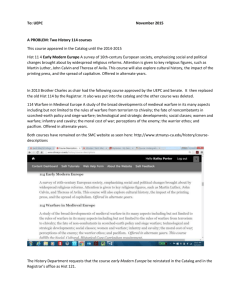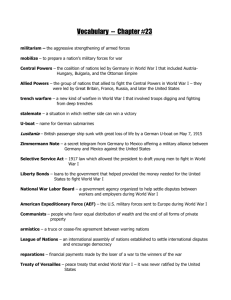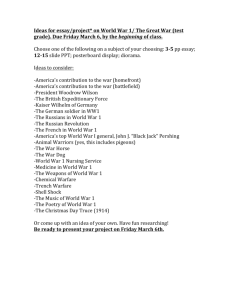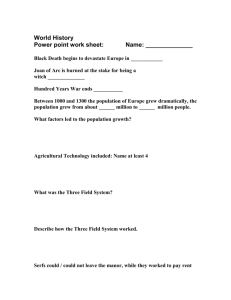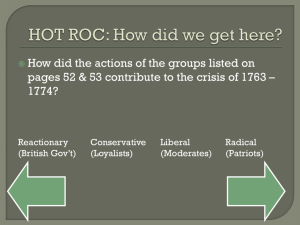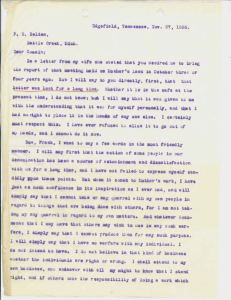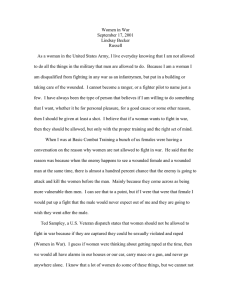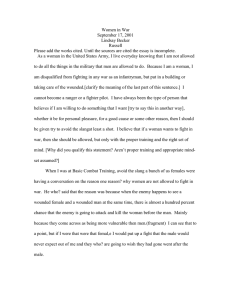The Evolution of War 1) Hunter-Gatherers
advertisement
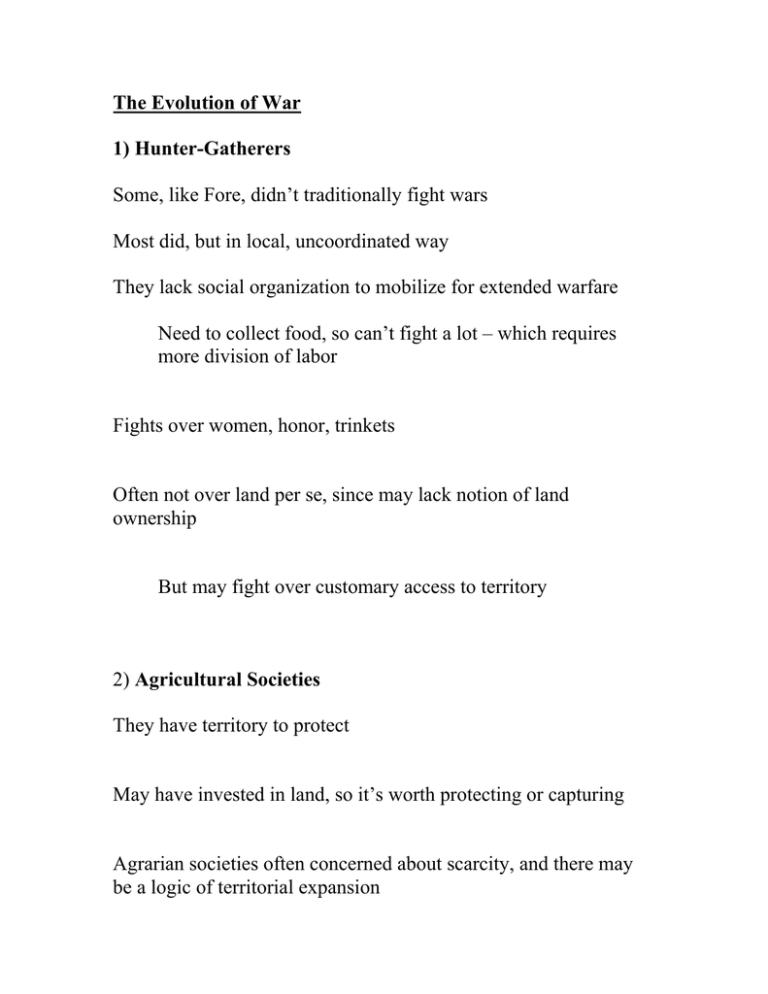
The Evolution of War 1) Hunter-Gatherers Some, like Fore, didn’t traditionally fight wars Most did, but in local, uncoordinated way They lack social organization to mobilize for extended warfare Need to collect food, so can’t fight a lot – which requires more division of labor Fights over women, honor, trinkets Often not over land per se, since may lack notion of land ownership But may fight over customary access to territory 2) Agricultural Societies They have territory to protect May have invested in land, so it’s worth protecting or capturing Agrarian societies often concerned about scarcity, and there may be a logic of territorial expansion Agrarian production sustains states: Charles Tilly: “the state made war and war made the state.” Medieval Europe saw mobilization for war through nobles pledging allegiance to monarch and his military adventures Medieval chivalric code: Warfare socially stratified: nobles v rest Honor to die in battle Codes of conduct 3) Bureaucratization of War 18th & 19th century Europe saw new mode of warfare: Regimental system Keegan discusses Drilling and subordination of individual to mass New technologies: guns, artillery, then tanks & airplanes Increased distance from enemy Increased resources needed for war Æ militarization of economy After French Revolution, nationalism legitimates this Attempts to segregate battlefield and protect non-combatants often overwhelmed by: (a) New technologies (b) Nationalist sense that the enemy is a whole country Hiroshima as endpoint of these trends
